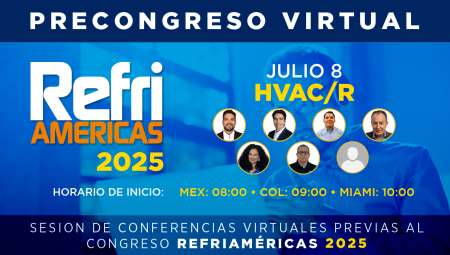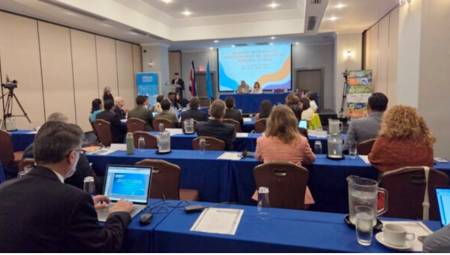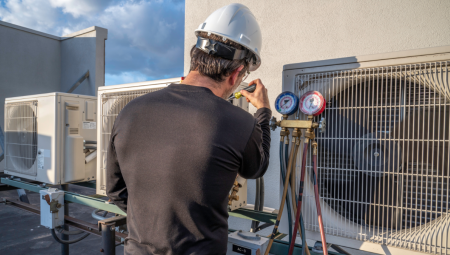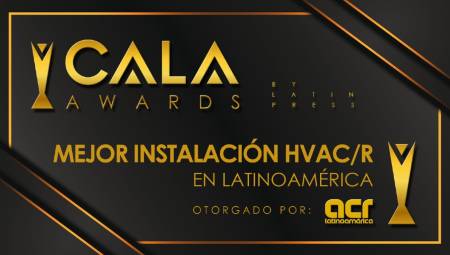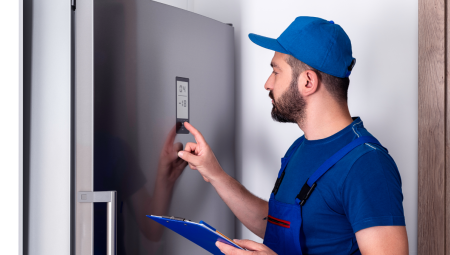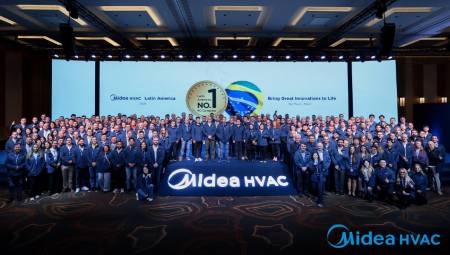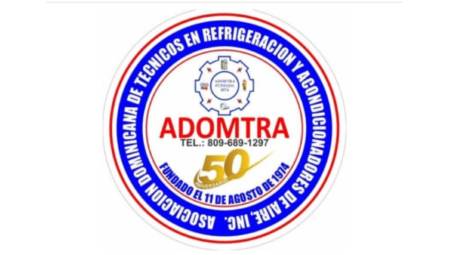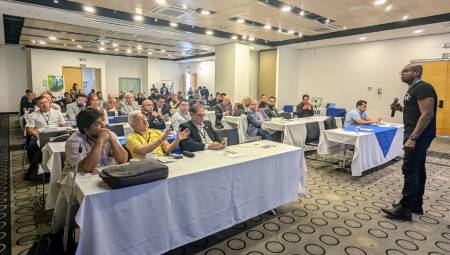A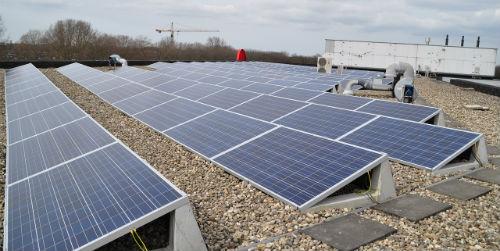 brief overview of the most important improvements that have been made to air conditioning technologies in recent years.
brief overview of the most important improvements that have been made to air conditioning technologies in recent years.
by Camilo Botero*
Dear readers, at the suggestion of the editor, we chose the theme of this column, in which I will treat in a somewhat disjointed way what we could consider as the maximum advances, recent, in air conditioning.
I will start with a current issue such as thermal districts. These are large centralized systems, which produce cold water, which is conducted by properly insulated pipe networks, of diameter in the order of more than 16 ", which conduct this water through a predetermined area, supplying the energy necessary to air condition several buildings at the same time, with very considerable benefits since the simultaneity factor is significantly reduced, thus being able to have centralized cold water systems of much smaller size, in relation to the thermal load installed in the buildings.
In Europe, the cold district of Paris was a pioneer, but nowadays cities such as Barcelona, Lisbon, London, Stockholm, Helsinki, Copenhagen etc., which have this technology, some of them also accompanied by heating for winter. In Toronto, Canada, there is a system of the order of 40,000 TR, which takes cold water from Lake Ontario, which I had the opportunity to meet a few years ago. In Singapore, they recently installed a gigantic cold water system of the order of 165,000 TR. Of course, countries such as the USA, Saudi Arabia and others have incorporated this technology that undoubtedly brings excellent benefits both in energy savings and in reducing the climate impact.
In Colombia there is a project that aims to implement Thermal Districts (DT) to improve the energy efficiency of buildings and replace cooling systems that work with ozone-depleting substances and substances of high environmental impact, contributing to the fulfillment of the commitments with the Montreal Protocol, the goals of the Colombian Low Carbon Development Strategy and the Rational and Efficient Use of Energy Program-PROURE.
The project contemplates two stages, the first is the installation of a Thermal District pilot in the city of Medellín to serve the air conditioning systems of public entities located in the Sector of La Alpujarra with a size of the order of 3,000 TR and which is already assembled, but has not yet commenced operation; It should be noted that this project is a pioneer in Latin America in this technology, and the second stage is the promotion of new Thermal Districts in five cities, for which strategies will be developed in order to strengthen the normative technique and institutionally, the local authorities of these cities, which will possibly be Cali, Medellín, Cartagena, Bogotá and a fifth to be defined, in order to undertake similar projects. In relation to the second stage of DT promotion in Colombia, an analysis of institutional, financial and technical barriers to the introduction of this alternative as a mechanism to achieve maximum energy efficiency in urban planning and optimize environmental management is contemplated at the national level.
Through this analysis, critical routes of actions will be established to make DTs viable in these cities; a state of the international context of DT in operation will be elaborated, and an inventory of technological conceptions applicable to the Colombian context will be elaborated. These conceptual and basic investigations and engineering, together with the experience of DT La Alpujarra will provide knowledge and expertise to establish a methodological guide in the cities that are the subject of this study for the decision making of the most convenient DT at the territorial level. Another part of the methodological guide will be the work of promoting the corresponding DT in the cities, the reason for this study.
In systems such as the Thermal Districts for air conditioning, all the novelties that have been incorporated into this industry are used, one of them is the optimization of the rational use of energy, through control, to achieve that the amount of energy required at partial loads due to air conditioning demand is consumed.
There are excellent protocols, programs, sensors, valves, actuators, etc., which allow to achieve that coupling between the demand profile of the systems and their energy consumption without deteriorating compliance with the design parameters. The training of engineers and technicians who know in depth the fundamentals and applications of controls, but who understand what thermal systems are like, since they react in minutes, hours and even days, while control systems react in fractions of a second. Lack of knowledge of this principle sometimes results in control systems not operating properly.
Zero energy balance
There are several methodologies for optimising HVAC systems, but the most ambitious of all, in my view, is ASHRAE's approach to zero energy balance by 2030, an overly ambitious but absolutely necessary goal. This is to encourage a building to collect all the energy of which it is capable that comes from renewable sources of energy, but always maintaining an acceptable functionality in the building. Buildings will be able to access energy from the public grid, but on the condition that the energy balance on an annual basis is "almost" zero. This is the great challenge that all the engineers and technicians of the world are facing and even more so those who are involved with the issue of air conditioning.
This implies substantial changes in technology, bold proposals in standardization and legislation and use of very effective methodologies for the design, construction, operation and maintenance of buildings such as commissioning (quality assurance throughout the useful life of the project) and energy audits; but above all a deep awareness of the need and goodness to incorporate this concept into our daily lives.
The goal is to definitively change the way we use energy and how we transform it, so that without deteriorating the quality of life that has been achieved, we do not deteriorate the environment and leave planet for future generations. This will force us to minimize the use of energy from hydrocarbon-based sources and move to unconventional energies, countries such as Norway and the Netherlands are already aiming for zero consumption of hydrocarbons based on wind generation.
Continue to promote standards
At the same time, the use of standards, codes and regulations has been promoted and updated, which lead to high efficiency systems, environmental care, compliance with design parameters, especially issues such as indoor air quality. ASHRAE, in this aspect does a wonderful job writing guides, standards and even some in code language that will then be mandatory.
In Colombia, a version of the Spanish RITE (Regulation of Thermal Installations in Buildings) was developed, which contemplates our climatic and constructive conditions, as well as the commonly used unit systems, our own terminology; This RITE version of Colombia, has already been incorporated as BPI 09 of ACAIRE (Good Engineering Practice), which is increasingly used, but which does not have the required impact, since it is not yet a mandatory regulation.
We have started again a campaign with ACAIRE and ACIEM to achieve its approval, which is absolutely necessary. The fact that the Ministry of Mines and Energy, to which it was presented in July 2012, has not approved it (or even studied) has caused energy to have been wasted, negatively impacted the environment and deteriorated the quality of life inside the buildings in a way, in my opinion, absurd.
I conclude by saying that keeping air conditioning systems in the state of the art leads us to increase the virtuous circle of TRAINING + NORMALIZATION + CERTIFICATION.
* Camilo Botero is the current Secretary of the Federation of Ibero-American Associations of Air Conditioning and Refrigeration - FAIAR; he was president of ACAIRE and is president of Camilo Botero Ingenieros Consultores Ltda. He has worked as a teacher in several Colombian universities, guilds and currently in ACAIRE in diploma courses of air conditioning projects, energy efficiency in air conditioning and refrigeration, cogeneration and trigeneration, applied psychometrics, thermodynamics, fluid mechanics, heat transfer and turbomachinery. ([email protected]).



